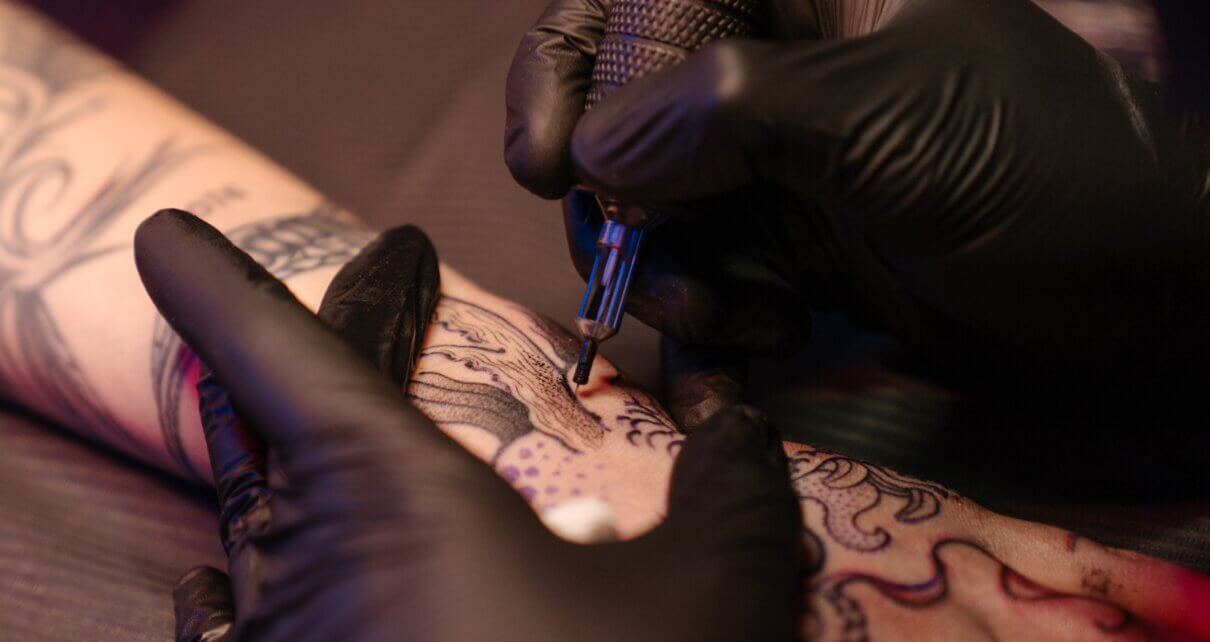Sun, swim, and sweat are the unholy trifecta when it comes to tattoo maintenance. It’s generally common knowledge that tattoos are largely permanent; however, there are many factors that can impair their ability to not just last but stay looking good over time.
When asked if tattoos are more at risk for infection, fading, and other problems during the summer, tattoo artist Eric Eastburn said, “The increase in sun exposure during the warmer months can cause these changes…But, neglecting to take care of a tattoo properly can result in infection and other problems, regardless of the season.”
Eastburn is currently working at Body Art World Tattooing in Long Branch and has been tattooing for 26 years.
According to Life Jacket, a company dedicated to stopping the spread of skin cancer through their creation of moisturizers and sunscreens, the sun causes tattoo damage because “UV rays penetrate the skin and break up the pigment particles of your tattoo.”
If the pigment is broken up into small enough pieces, your white blood cells can pretty much eat away at those particles. Say bye-bye to that tattoo.
“[Tanning] is a definite no during the initial healing process,” added Eastburn. “SPF should not be used during the initial healing process. It is best to cover with loose fitting clothing during this time. After about two to three weeks, you can begin using an SPF of 30+ whenever you are exposed to the sun.”
Eastburn warns that a sunburn on a fresh tattoo both hinders the healing process and makes it painful.
As far as different skin tones go, Eastburn commented, “In general, the lighter your skin tone, the more likely you are to burn, but the risk for sun damage is the same for darker skin.” Regardless of how light or dark your skin is, a tattoo is essentially an open wound on your body.
Oscar Garcia, a tattoo artist and owner of SoulKraft Ink in Asbury Park, explained that in his 29 years of tattooing, he’s experienced improper tattoo care more times than he can count. “People don’t realize that a tattoo is an open wound and don’t care for it as if it is. Tattoos have been infected, but, most commonly, fade quickly due to a client working out or going in the sun or water too quickly after being tattooed.” If you do by chance get sunburned on a fresh tattoo (or at all), he advises taking care of your skin with aloe vera.
With the summer months and rising temperatures fast approaching, sweat is unavoidable. While sweating is not necessarily an issue for an older tattoo, it can put a fresh piece of ink at risk for a nasty infection. Before you get out there to flaunt your new body art, your artist will likely bandage you up. While this is good, excess sweat can trap moisture and dirt under these bandages, and a hot and wet environment is the perfect Airbnb for bacteria.
“I recommend not going to the gym for 72 hours after a fresh tattoo,” advises Garcia. “The sweat doesn’t help the fresh tattoo, and gyms are hotbeds to contract an infection.”
Sun and sweat aren’t the only forbidden fruits for your ink. Eastburn likewise warns that pools and oceans can have many different types of bacteria in them, as well as harmful chemicals. In addition, saltwater or chlorine can fade your tattoos over time and dry out your skin.
Dry skin can increase itchiness or irritation for a healing tattoo and affect the final appearance. Both Eastburn and Garcia agree that one should not immerse a fresh tattoo in any water, excluding proper shower care, during the first two or so weeks.
“I recommend washing gently two to three times per day depending on your lifestyle,” shared Eastburn. He advised using a thin layer of Aquaphor or an antibiotic ointment like Vitamins A&D after washing the tattoo and whenever it starts to feel dry.
After about a week you can switch to a non-scented lotion like Lubriderm. If the tattoo is fully healed, you can use whatever lotion you normally use. “Your overall general health plays an important role in your ability to heal well, so take care of yourself,” he continued.
“All tattoos will fade over time. New and old ones. If you want to ensure your tattoos look their best for as long as possible, follow your tattoo artist’s instructions and take care of your skin. Otherwise, you’ll need to get the tattoo touched-up or redone,” expanded Eastburn.
Barwald, a senior political science student, recently had to get a tattoo she got on her back last July touched up due to fading.
“The one thing I wasn’t really aware of, which is so obvious now, is how long exposure to the sun during the beginning of the healing process can make the tattoo fade faster,” said Barwald.
“Tattoos are an investment of both time and money, and you want them to look good for as long as possible,” closed Eastburn. “It’s the tattoo artist’s job to give you a nice tattoo; it’s your job to take care of it.”




